In Bihar’s Border Districts, Bahus From Nepal Fear Loss Of Citizenship After SIR
There is hardly any Bihar village bordering Nepal which does not have a bahu from Nepal. The women are now worried that the ongoing SIR could impact their citizenship rights in India

For two decades, Reena Devi*40, has switched easily between two homes – her marital home in Bihar’s Kishanganj district and maternal home in Jhapa district of Koshi province in Nepal – by crossing the perennial Mechi river. In summer, she could just walk across the dry river bed and during monsoon she would take a boat across Mechi’s swollen waters. She did not need to produce a passport or visa or indeed any material proof of her citizenship. Her life was borderless and seamless.
Now, however, a new fear and anxiety have gripped her. The ongoing Special Intensive Revision (SIR) of Bihar’s electoral rolls, being conducted on the instructions by the Election Commission of India (ECI), is seeking to weed out ineligible voters and this has made it hard for Reena Devi to understand where she belongs.
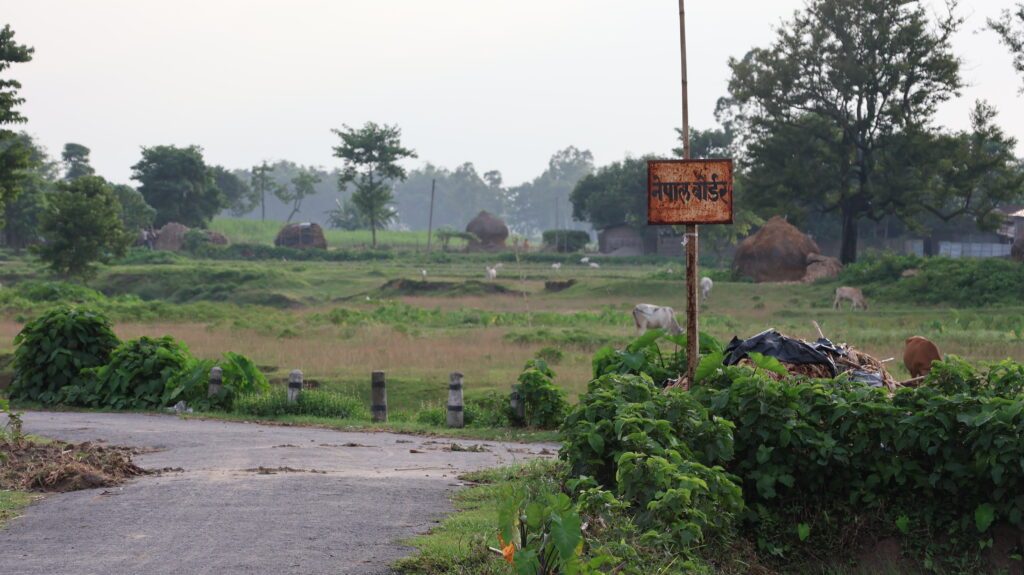
Per ECI’s instructions, voters whose names were included in the state’s electoral rolls after 2003 will now have to submit a slew of documents which includes their proof of identity, the date and place of their birth and the details of the parents’ Electors Photo Identity Card (EPIC) available in the voter list of the year 2003.
Under central government laws, women like Reena Devi, can apply for a citizenship registration if they are married to an Indian citizen and have been living in the country for seven years. But so far, few bothered with this registration because at an informal level, Nepalese women married to Indian citizens are added to the voter list through a straightforward process. They are also issued Aadhaar and other documents such as ration cards.
But the conditions imposed by the ECI have left Reena worried about her eligibility to vote in the upcoming state assembly elections, as she has done since 2009. What worries her even more is that they will raise questions about her citizenship. Would she be allowed to stay with her husband in India or be deported to Nepal?
“Ab agar mor naam hate dile te dikkat chhe, bhot ni duva paale hamra ginti ni rohnu na sarkarot. Ura te dikkat chhe na, proof banwa hobe na. Koe suvidha ni dibe (if my name is removed, I won’t get to vote and will not have a say in the formation of the government. I will have to apply for some other proof else I will be deprived of all government entitlements),” said Reena Devi in local Surjapuri dialect – a mix of Maithili and Urdu with a touch of Bangla – spoken primarily in the northeastern part of Bihar and the neighbouring regions of West Bengal and Nepal.
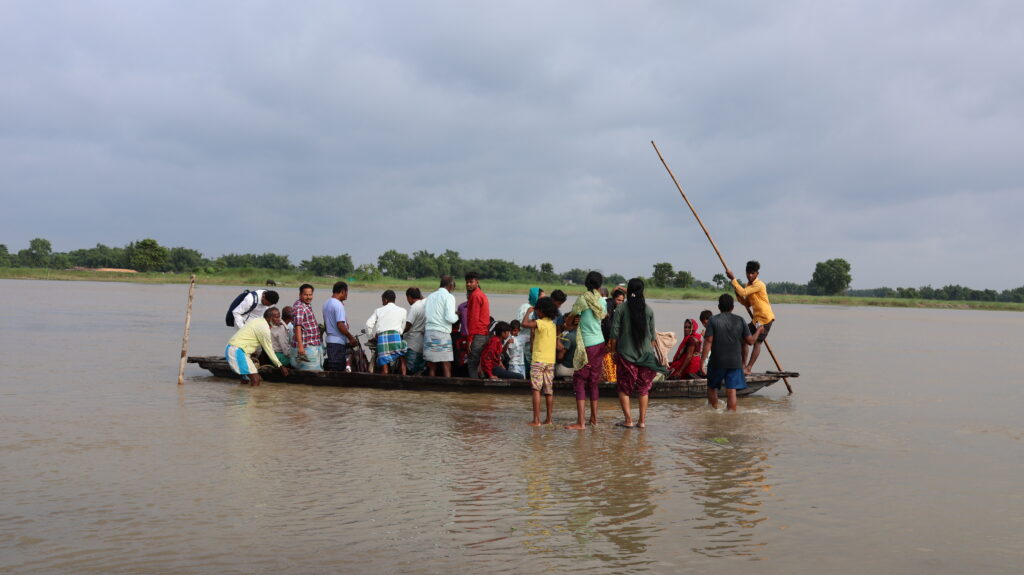
On a mid-July evening, as we walked through the semi-dry Mechi river along with the locals returning from the local market, we reached a village, dotted with mostly thatched homes. We encountered more women like Reena, from Nepal but married into Indian families and with homes here. They were all worried with confusion and anxiety writ large on their faces.
What Is The SIR?
The ECI, on June 24 announced a Special Intensive Revision of Bihar’s electoral rolls to ‘ensure that the names of all eligible citizens are included in the Electoral Roll (ER) so as to enable them to exercise their franchise, no ineligible voter is included in the electoral rolls’.
The EC said that this revision, which would be extended to the entire country subsequently, would be done in a transparent manner. Rapid urbanisation, frequent migration, young citizens becoming eligible to vote, non-reporting of deaths and inclusion of the names of foreign illegal immigrants have necessitated the conduct of an intensive revision, said the EC communique. Bihar has 7.89 crore voters of whom about 47.6% (3.76 crores) of them are women.
To complete this process, around 1 lakh booth level officers (BLOs) are going door-to-door, distributing enumeration forms and then collecting the filled forms, which are being uploaded on the ECI portal. This intensive exercise is being conducted within a tight schedule – the enrollment is to be completed by July 25 and the final list of voters to be published by September 30. Bihar will go for assembly polls in October-November.
According to ECI instructions, voters whose names were included in the voter list of the year 2003, the year the last SIR was conducted, would have to just fill the desired information in the enumeration form. But voters whose names have been included in the voter list after 2003 will have to submit their identity proof along with the EPICs of their parents from 2003.
The ECI said that as of now nearly 60% of the total electorate would not have to submit any documents.
These are the conditions laid out by the ECI:
- Those born before 1987 would have to submit a proof of their date and place of birth from the 11 documents mandated by the ECI
- Those born between 1987 and 2004 would need to submit their own as well as both their parents’ proof of date and place of birth.
- Those born after 2004 would have to provide proof of their own as well as both their parents’ proof of birth as well as citizenship.
- Those born outside India would need to attach proof of birth issued by the Indian mission abroad.
- Those who have acquired Indian citizenship by naturalisation would have to submit a Certificate of Registration of Citizenship.
The ECI has included in its list of identification documents the following: identity card/certificate/document issued by the government/local administration/bank/post office/LIC/PSU, birth certificate, passport, secondary/educational certificate, certificate of permanent residence, forest rights certificate, OBC/SC/ST certificate, National Register of citizens( NRC), family register and any land/house allotment certificate issued by the government in identification certificates.
ECI data say that 2.93 crore voters have been added to the voter list after the year 2003, so these voters will have to provide additional documents to prove their citizenship.
The sudden SIR exercise has thrown many into a quandary. An investigation by the Reporter’s Collective has shown that between June 2024 and January 2025, the state election machinery had completed a revision of the electoral rolls, called the Special Summary Revision 2025. Even former officials of the ECI are taken aback by the ‘disruptive exercise’ that, without reason, discriminates between voters who were enrolled before 2003 and those after, according to the Reporters’ Collective investigation.
The Registration of Electors Rules of 1960 defines three types of electoral rolls revision – intensive, summary, and ‘partly summary and partly intensive’. The SIR is neither mentioned nor defined in the rules governing electoral rolls, per the report by the Reporters’ Collective. Another former official told the Collective that the ECI was using discretionary power for wrongful ends and could “end up taking away the rights of people to vote and unfairly raise doubts over their citizenship”. The ECI, in an counter affidavit filed in the Supreme Court has said that ‘Under the SIR exercise, the citizenship of an individual will not terminate on account of the fact that he/ she is held to be ineligible for registration in the electoral rolls.’
This is an overreach on part of the ECI, said Pushpendra, former professor at the Tata Institute of Social Sciences, Mumbai. “Whatever is happening in the name of SIR is illegal. Only the home ministry has the right to decide the citizenship of an Indian, and not the ECI,” he told Behanbox. He feared that the SIR process would make the ERO more powerful, in a position to take arbitrary decisions on who can and cannot vote.
The Supreme Court is currently hearing a bunch of petitions filed by the Association for Democratic Reforms and the Swaraj Party member and activist Yogendra Yadav, under Article 32, challenging the ECI’s notification. They claim that the SIR is arbitrary and violative of the universal right to adult suffrage and shifts the burden of proof onto individual citizens, requiring fresh applications and documentary evidence of citizenship by July 25, 2025.
The SIR exercise has raised fears of exclusion of millions of voters from the electoral list. In a state where 73% of the area is flood prone and an estimated 6.76 crore people have been affected in a decade, according to data from the National Disaster Management Authority, accessing documents necessary for the SIR may prove to be a bottleneck.
Mahendra Yadav, who heads the Kosi Navnirmal Manch that works in the flood-prone Kosi region, said that there are lots of families, especially Dalit and Adivasi, who live on the frontlines and whose documents have been washed away in floods over the years. There is also the fear that the SIR will impact the narrowing of the voter gender gap that India has been witnessing over the last few elections.
Beti-Roti Ties with Nepal
India shares a 1751-km border with neighbouring Nepal and 756 km of that falls in the state of Bihar spanning seven districts — West Champaran, East Champaran, Sitamarhi, Madhubani, Supaul, Araria and Kishanganj.
Along with borders, both countries have shared histories, languages and culture. Recognising the centuries old ties, both countries decided to sign a Treaty of Peace and Friendship in 1950.
The Treaty’s article 7 says: “The Governments of India and Nepal agree to grant, on reciprocal basis, to the nationals of one country in the territories of the other the same privileges in the matter of residence, ownership of property, participation in trade and commerce, movement and other privileges of a similar nature.”
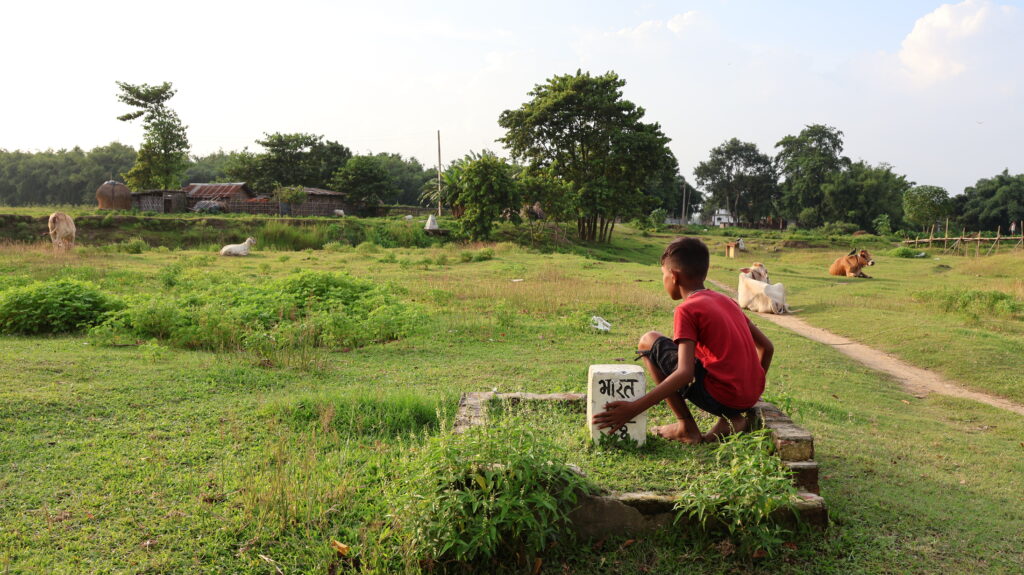
Under this Treaty both countries decided to keep the borders free and open. Locally, the countries are known to share a Beti-Roti (marriage and livelihood) relation with free movement of people for work and marriage.
Reena Devi, now a mother of a 11 and 16 year old, narrated her own experience. “I already had relatives in this village. They had seen the boy and found him suitable for me. That is how we got married. The wedding was a grand affair.”
There is hardly any village in Bihar adjacent to the Nepal border, which does not have a bahu (daughter-in-law) from Nepal. In Reena’s village alone, there are an estimated 200 Nepali bahus, according to a local panchayat representative who wished to not be named.
The ECI is silent on what will happen to them in the SIR. The local ECI officials too are clueless on this.
“Currently, we are just collecting enumeration forms. Those who have no valid documents, can submit enumeration forms. The list will be published on August 1. We will decide on them (Nepali bahus) later when ECI gives clear direction on this,” Kishanganj District Magistrate Vishal Raj told Behanbox.
Fears loom large
Reena Devi has filled out the enumeration forms given by the BLO for the moment as she has been a voter since 2009. “I have submitted my photo, Aadhaar details and details of my parents, husband and in-laws.”The BLO has assured her that there won’t be any issue,” she said.
Yet, her anxiety is palpable.
“If our names are deleted from the voter list we will not get ration or other facilities.,” she told Behanbox.
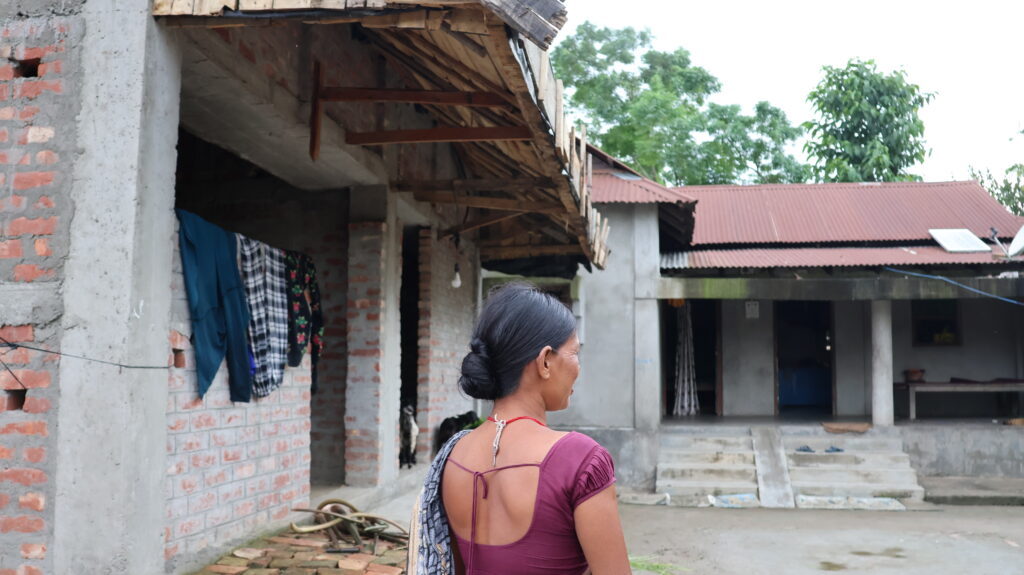
Her parents in Nepal are not aware about the developing situation. “I have not yet talked to them, even though I can just walk over to my village.”
Most of the Nepal origin women have no idea what kind of repercussions they will face if they have no valid documents to prove their citizenship of India.
Satto Devi*, 29, who moved to India after her marriage nine years ago, is unaware of the probable consequences of the SIR. “BLO has asked for nothing,” she told Behanbox, as she sat on the floor of a local grocery shop. Her name is in the voter list and she has exercised her franchise a couple of times since then, the last being the 2024 general elections.
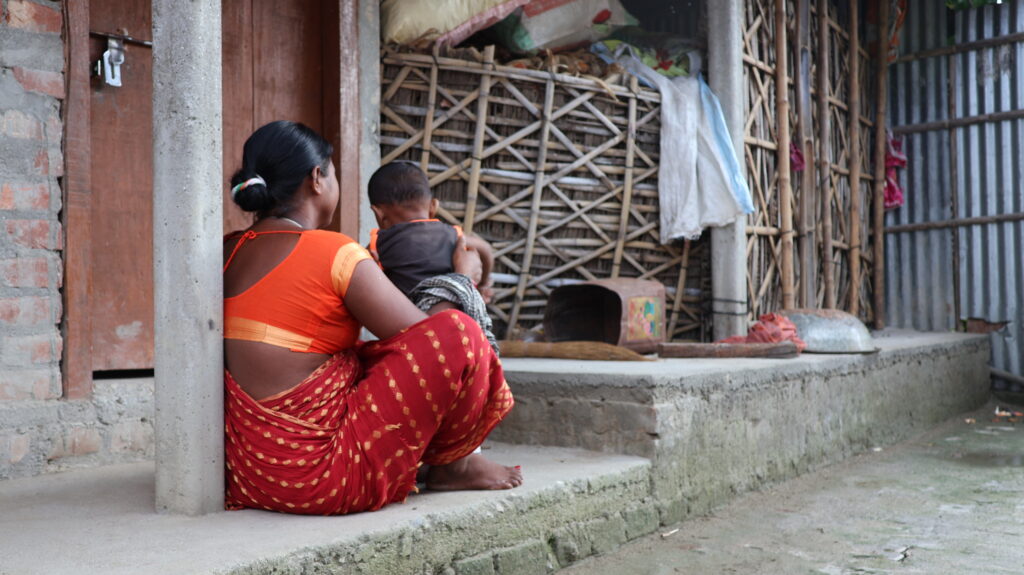
For now, she has submitted an enumeration form with her photo and provided details of her Aadhaar card, even though it is not among the 11 documents mandated by the ECI to be included in the electoral rolls. When informed about this, she looked worried. “Now if Aadhaar is not valid then what will I do?” she asked. The Supreme Court, while hearing the petitions on the SIR has ordered that Aadhaar, ration card and EPIC as valid proof of identity as most people have one or all of these documents. In a counter affidavit filed by the ECI on 21 July, it has defended the exclusion of Aadhaar from the list of documents used in the revision exercise, stating that it does not serve as proof of citizenship under Article 326 of the Constitution. However, it clarified that the list of acceptable documents was indicative and not exhaustive.
“I have also given details of my parents (in Nepal). The BLO has said that these details are valid,” Satto Devi said.
Meanwhile she has applied for a residential certificate, a proof of residence issued by the state government. “Kohanche henjabe, nivas khan osbe mok jama kare dis (BLO has told me that the residential certificate will work. I should submit it when it comes),” she said. Her worry multiplied when she learned that the revision exercise could lead to her name being excluded from the rolls. “If this happens, then I will not get rations.”
For 38-year-old Malti Devi (name changed) also from Nepal lives in the same village as Reena and Satto, enrolling in the electoral roll 15 years ago was a fairly simple process. “A camp was organised in a local school. I went with my father-in-law and got my name enrolled in the voter list,” she recalled. She has voted many times since then. With the SIR process, she is worried for her three children who are between the ages of 10 and 16.
When she learnt that an Aadhaar card or any document from Nepal would not be considered as valid proof, she said: “Aadhaar card, Nepaler maa-baaper naam ni manbe te ki menbe? Chale jaachhi Nepal. Ni manbe te jawe hobe (If Aadhar card, parents’ documents of Nepal will not be accepted then what will be accepted? I will have to go to Nepal then, won’t I?).”
Citizenship Certificate
BehanBox has learnt from district election officers who choose to remain anonymous that the women from Nepal will be asked to furnish their citizenship certificates issued by the Ministry of Home Affairs under Citizenship Act 1955. The Act offers citizenship by birth, descent, registration, naturalisation and incorporation of territory. A district official said that if a person has stayed more than seven to 10 years in India, he/she can apply for a citizenship certificate.
But, generations of Nepali women marrying into India have never been told about the certificate, nor have made efforts to get one, said a local panchayat official.
“We have no information on this [citizenship certificates for women from Nepal married locally]. The administration also never informed us,” said the panchayat official. “Hum to apke muh se hi pahli baar sun rahe hain ki aisa kuch banwana padta hai (this is the first time I am hearing of this from you).”
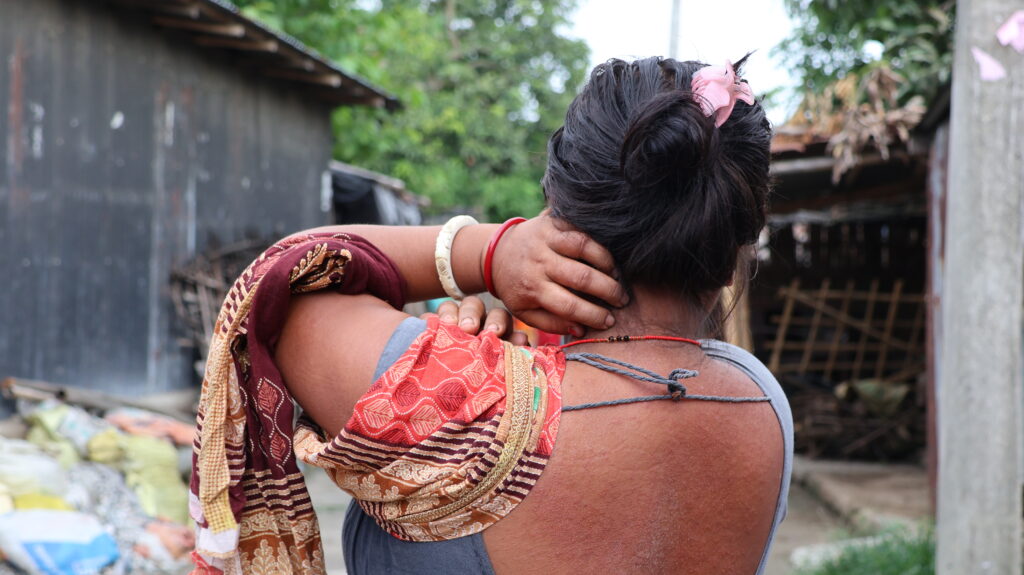
With fear of being excluded from the voter lists and consequent action looming large, people in these border regions are now apprehensive about marrying across the border.
The panchayat representative, whose wife is Nepali and whose two sisters and daughter are married to men in Nepal, said: “Asar to padega hi. Ab bhay lagega ki shadi karenge to nagarikta nahi milega (it will definitely have an impact; people will now be afraid that their wives from Nepal will not get citizenship).”
We believe everyone deserves equal access to accurate news. Support from our readers enables us to keep our journalism open and free for everyone, all over the world.

